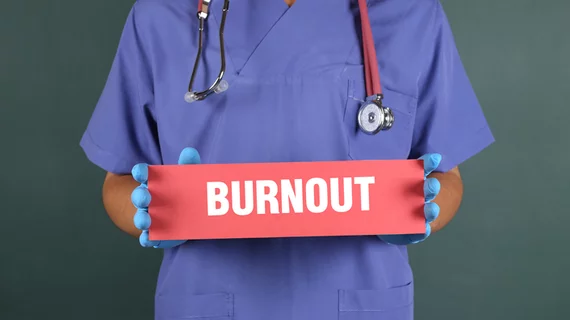Around 29% of cardiologists are burned out in contemporary practice, according to Medscape’s Cardiologist Lifestyle, Happiness & Burnout Report 2020—but the majority haven’t sought professional help for burnout and don’t plan to.
Around 28% of cardiologists reported being happy at work in this year’s report, which puts them above the unhappiest specialists (neurologists, 18%) but several notches below the happiest ones (dermatologists, 41%). Overall, Medscape estimates that 41% of physicians are burned out, so cardiologists fall a little below that average.
While slightly less than one-third of cardiologists said they were burned out, another 2% reported being depressed and 15% reported being both burned out and depressed. Cardiologists were in agreement that an excess of bureaucratic tasks, including charting and paperwork, contributed most to their burnout (64%), followed by long work hours (39%), increasing computerization of practice and EHRs (33%), and a lack of autonomy (31%). Twenty-nine percent said they didn’t feel they were being paid enough.
The majority of cardiologists seem to cope with burnout well, opting to either exercise (45%), talk with close friends or family members about their difficulties (43%) and play or listen to music (26%). But others turn to more detrimental habits, including isolation (42%), junk food (29%), alcohol (23%), binge-eating (17%) and prescription drugs (1%).
Just 6% of cardiologists who responded to the survey said they were currently seeking professional help for their burnout, and another 4% said they were planning to seek professional help. However, 76% of burned-out or depressed physicians said they hadn’t sought professional help in the past and weren’t planning to in the future.
Most respondents said they hadn’t sought professional help because “I can deal with this without help from a professional” (49%). Others claimed their symptoms weren’t “severe enough” (46%) or that they were too busy to seek help (34%). Seventeen percent didn’t want to risk disclosure.
As far as lifestyle goes, most cardiologists are married—88% of men and 80% of women—and on average those relationships were described as “good” or “very good.” The majority of cardiologists drive either Toyotas (16%), BMWs (15%), Mercedes-Benzes (14%) or Hondas (13%).
Find the full Medscape report here.

